AI in the Workplace Survey Finds 99% of Workers Are Using AI
Create Your Resume Now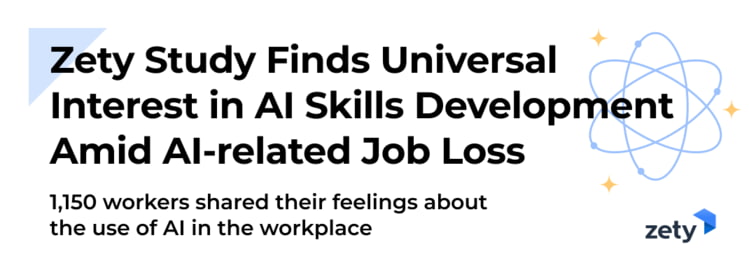
A new Zety poll found that workers are racing to adopt AI technology in the workplace and improve their skills amid a surprising number of AI-related job losses.
Key findings of Zety’s AI in the Workplace Survey include:
- 71% of those surveyed currently use AI at work.
- 25% of people surveyed say they have lost a job thanks to AI.
- 100% of respondents reported an interest in improving their AI skills.
- 95% reported that they are currently participating in training or taking other steps to improve their AI skills.
- The majority of participants (60%) reported that they began using AI in 2023; another 26% just started using AI this year (2024).
Between March 11-12, Zety polled 1,150 people across the U.S. on their use of AI in the workplace. The AI in the Workplace Survey found that a large percentage (71%) of the workforce has already begun using AI in some capacity. A significant number of those surveyed are using the technology exclusively for work purposes, but personal use was also common among participants.
AI Adoption Rates Among Participants
- 23% use AI for both work and personal use
- 48% use AI, like ChatGPT, at work
- 28% use AI only for personal use
- Only 1% of those surveyed said they do not use AI
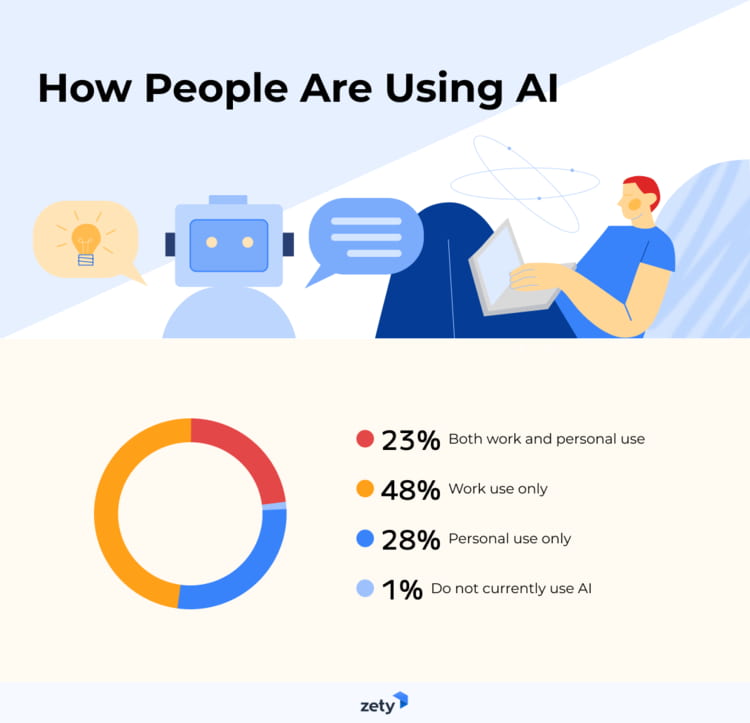
Job Loss Fears Realized
For years, workers have worried that AI use in the workplace will displace some workers. The AI in the Workplace Survey found that those fears are alive and well. Eighty-nine percent of respondents confirmed that they worry they could lose their jobs due to the integration of AI tools in the workplace.
These fears aren’t unfounded. A quarter of respondents reported that they have already experienced a job loss directly related to AI. The survey results suggest that younger workers, who are more likely to be in entry-level positions, have been most impacted by AI-related job losses.
AI-related Job Loss
- Overall, 25% of participants reported that they have already lost their jobs because of AI
- 43% of people 25 or younger in the study say that they have already lost a job because of AI
- 27% of people between the ages of 26-40 have lost a job because of AI
- 19% of people over the age of 41 reported losing a job because of AI
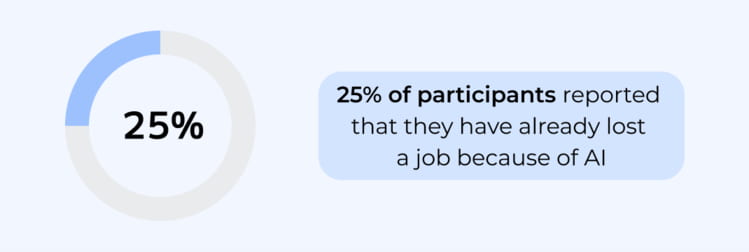
A Race To Stay Relevant
The study found that the use of AI is new to the work landscape, with most users having a year or less of experience with the tools. However, use of the technology is gaining in popularity. The majority of those polled began adopting AI in 2023 and 2024. A smaller number of respondents said that they were using AI prior to 2023.
AI Usage in the Workplace: 2021 - Present
- Only 5% of those surveyed have been using AI since 2021
- 8% began using AI in 2022
- The majority of respondents (60%) started using AI in 2023
- 26% did not begin using AI until 2024
- Only 1% of respondents do not use AI yet
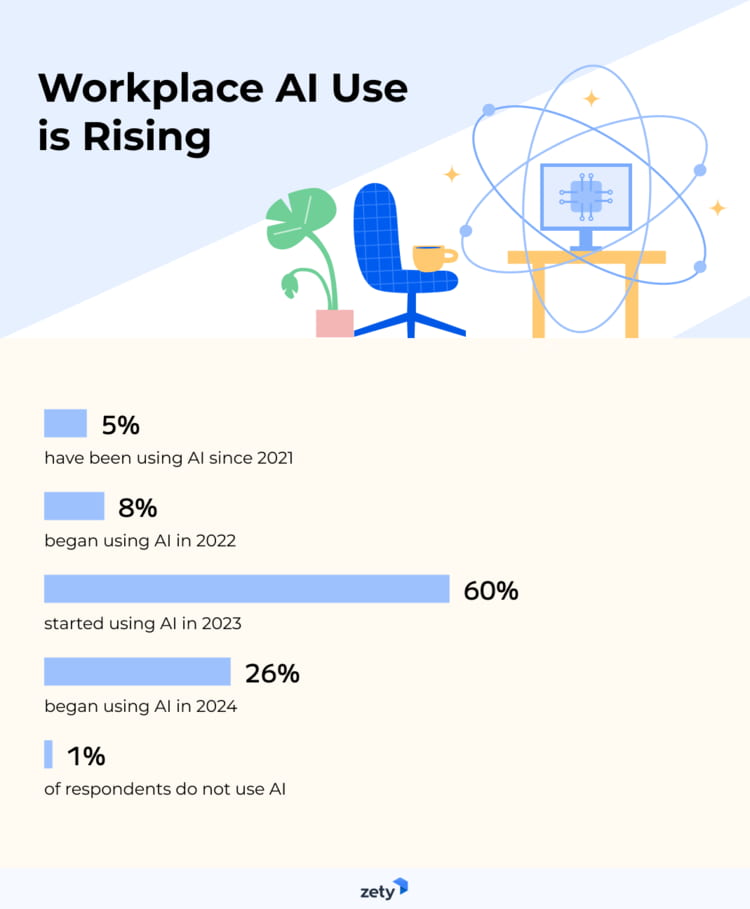
Despite – or possibly because of – AI-related job losses, workers are highly motivated to improve their skill set and integrate AI into their work functions.
While most participants have a year or less of experience using AI tools, the study shows that employees are making an effort to stay ahead of the curve by improving their skills. When asked if they are going through a training program or taking other steps to develop or expand AI skills, most (95%) said “yes.”
The survey found that interest in upskilling was universal, with 100% of participants indicating that they hope to elevate their skills and understanding of AI technology in the future.
Interest in Developing New AI Skills
- 53% of participants are very interested in developing new AI skills
- 47% said they are at least somewhat interested in developing new AI skills
- Not a single person surveyed (0%) reported no interest in developing AI skills
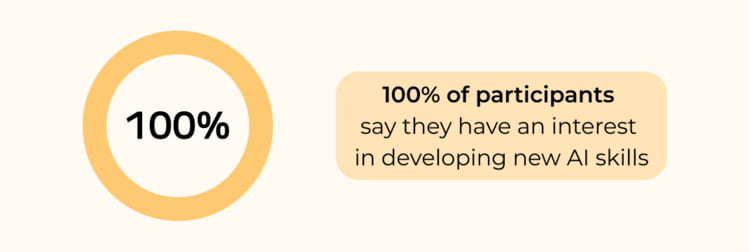
Key Takeaways
AI tools are poised to revolutionize the way work is done. Adoption of the technology is rapidly increasing, with scores of workers learning how to use AI in 2023 and 2024.
Despite – or possibly because of – significant job losses related to AI, workers are rising to the challenge and many are in the process of learning new skills. Across the board, users showed an enthusiasm for improving their AI skills.
Becoming familiar with AI tools, developing technical skills and identifying opportunities to begin working with AI in the workplace are critical steps to coming out on top as AI begins to have a profound effect on the workplace. A wave of change is on its way and it’s clear that learning, training and adapting is the smartest path forward.
